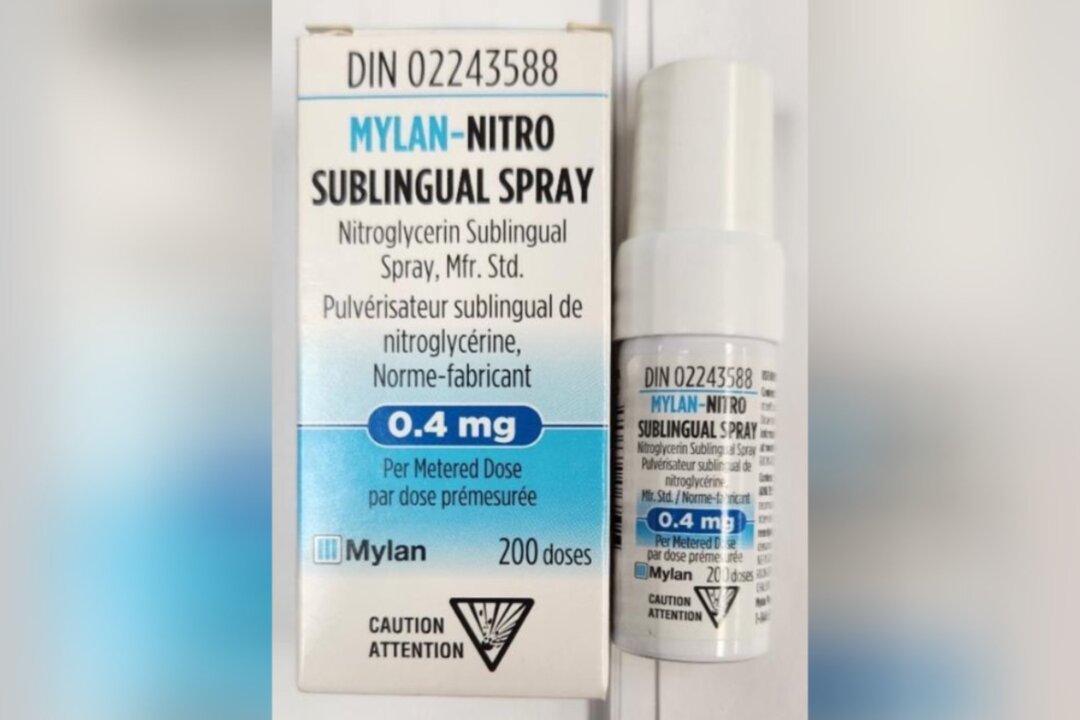Health Canada says the country is facing a shortage of nitroglycerin tablets—which are used to treat chest pain for people with coronary heart artery disease—due to an increase in demand and a shortage of key ingredients of the spray version of the drug.
“Together with its partners, Health Canada is looking at ways to conserve existing supply, expedite resupplies to hospitals and pharmacies, and access foreign-authorized supply or alternatives, where possible,” Health Canada said in a press release on May 10.





